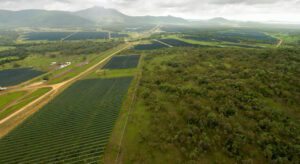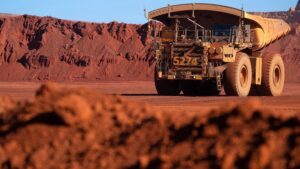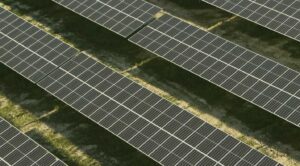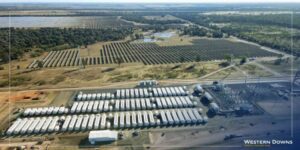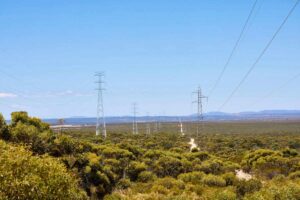Saudi Arabia’s 400MW Dumat Al Jandal onshore wind farm has announced what it says is a world record-low onshore wind levellised cost of electricity (LCOE) of 1.99 US cents per kilowatt-hour (kWh).
The Dumat Al Jandal onshore wind farm – set to be located more than 800kms north of Riyadh in the Al Jouf region of north-western Saudi Arabia – will be the country’s first wind project and the largest in the Middle East.
The developing consortium – led by French renewable energy group EDF Renewables and renewable energy developer Masdar, a subsidiary of Mubadala Development Company – was awarded the project in January at an already-impressive low price of 2.1 cents/kWh, a record for the Middle East and North Africa region.
It was not until late-July, however, that the developing-consortium completed the financing for the project and announced financial close, during which time the project had made a 6.5% improvement on LCoE, bringing it down from 2.13 US cents/kWh to what the developers are now describing as a world-record 1.99 cents/kWh.
“We are delighted to take part in the first wind project in the country, which is set to be the most powerful wind farm in the Middle East,” said Bruno Bensasson, EDF Group Senior Executive President responsible for Renewable Energies, and Chairman and CEO of EDF Renewables.
“This new step reflects the quality of our partnership with Masdar, which has enabled us to jointly submit the most competitive bid. Wind power is now representing a renewable and economical solution in the energy mix.
“This new project demonstrates our ambitions in the country and represents another step forward under the EDF Group’s Cap 2030 strategy, which aims to double its renewable energy capacity by 2030 – both in France and worldwide – to 50 GW.”
Construction of the project is expected to begin shortly, with commercial operations due for start in the first quarter of 2022.
Vestas Wind Systems A/S has already been contracted as the project’s wind turbine technology provider and will be responsible for engineering, procurement, and construction (EPC). TSK will be responsible for the balance of plant (BOP), while CG Holdings will provide the substations and high-voltage solutions.
Further, the project is expected to create 800 jobs during the construction phase of the project and another 150 jobs during operation. Ultimately, the 400 MW wind project will supply electricity enough for the equivalent of 70,000 average Saudi homes.
“The award of Saudi Arabia’s first and the Middle East’s largest wind farm during Abu Dhabi Sustainability Week in January was a momentous occasion for our company and our partners,” crowed Mohamed Jameel Al Ramahi, Chief Executive Officer of Masdar.
“It also illustrated the depth of Saudi Arabia’s commitment to realise its bold strategy to substantially increase the contribution of renewables in its total energy mix to 27.3GW by 2024, from wind as well as solar energy.
Tracking the world’s ever-increasing number of renewable energy projects vying for “cheapest” is, in and of itself, a full-time job, and can come with a number of risks in identifying the validity of all the various claims.
The International Renewable Energy Agency (IRENA) published its figures for average renewable power generation costs for 2018 in late-May, which showed that the “global weighted-average LCoE of onshore wind projects commissioned in 2018” fell 13% to 5.6 cents/kWh.
And while there have been the occasional project commissioned with an LCoE of between 3 cents/kWh and 4 cents/kWh, it would appear that, as of writing, the Dumat Al Jandal project does indeed have the lowest LCoE for onshore wind.


